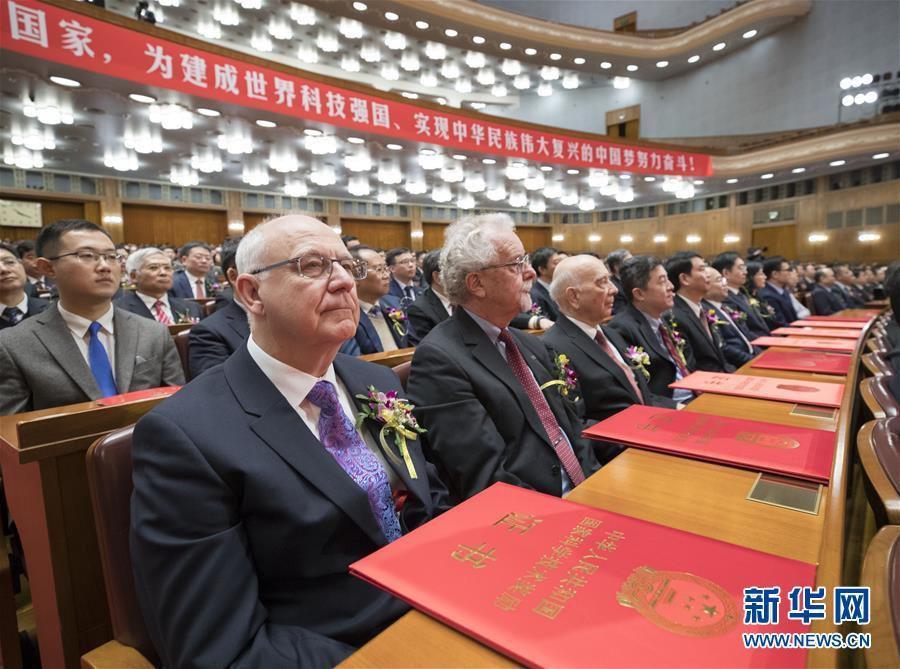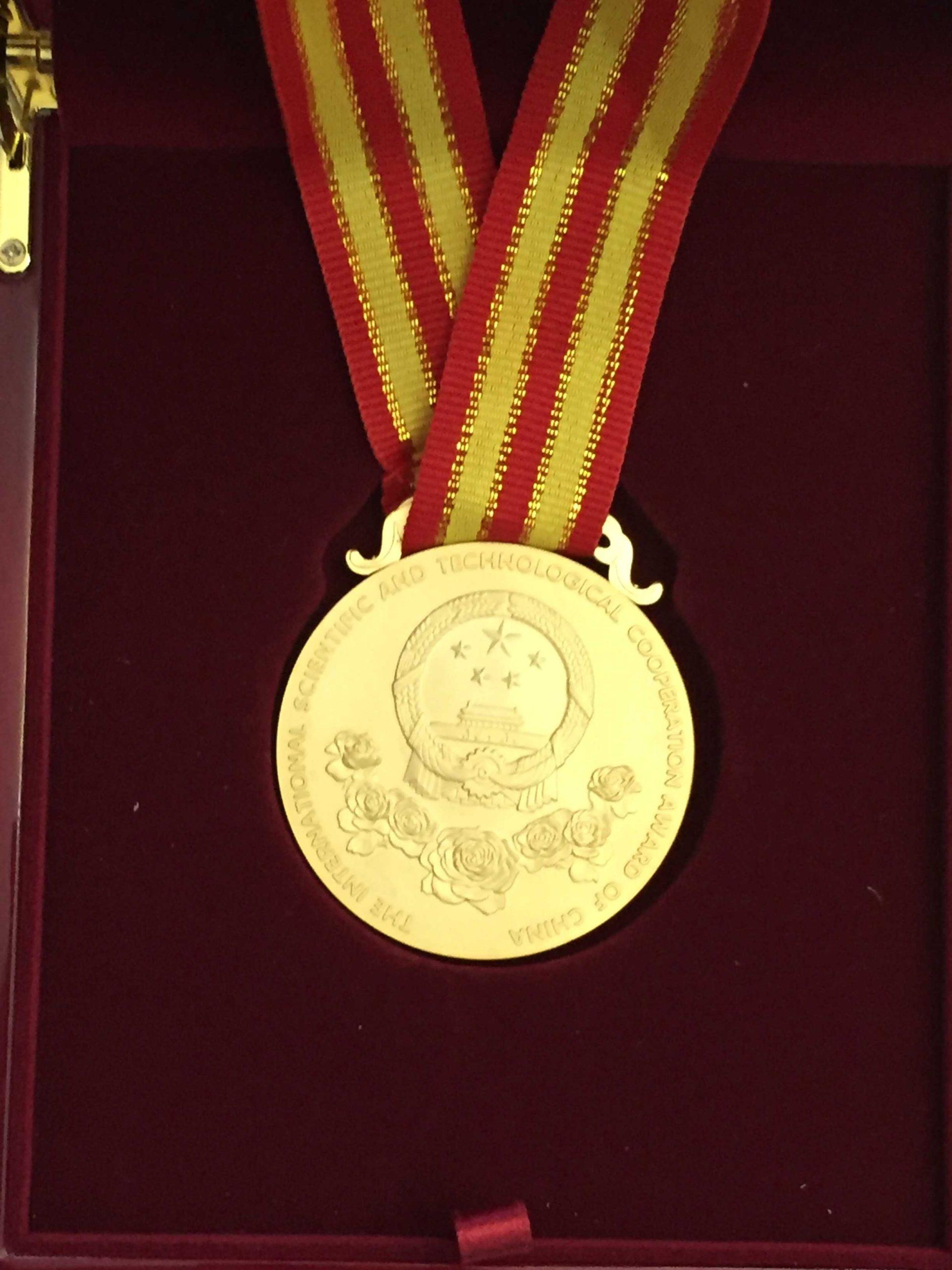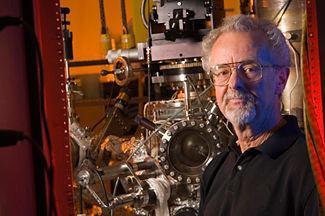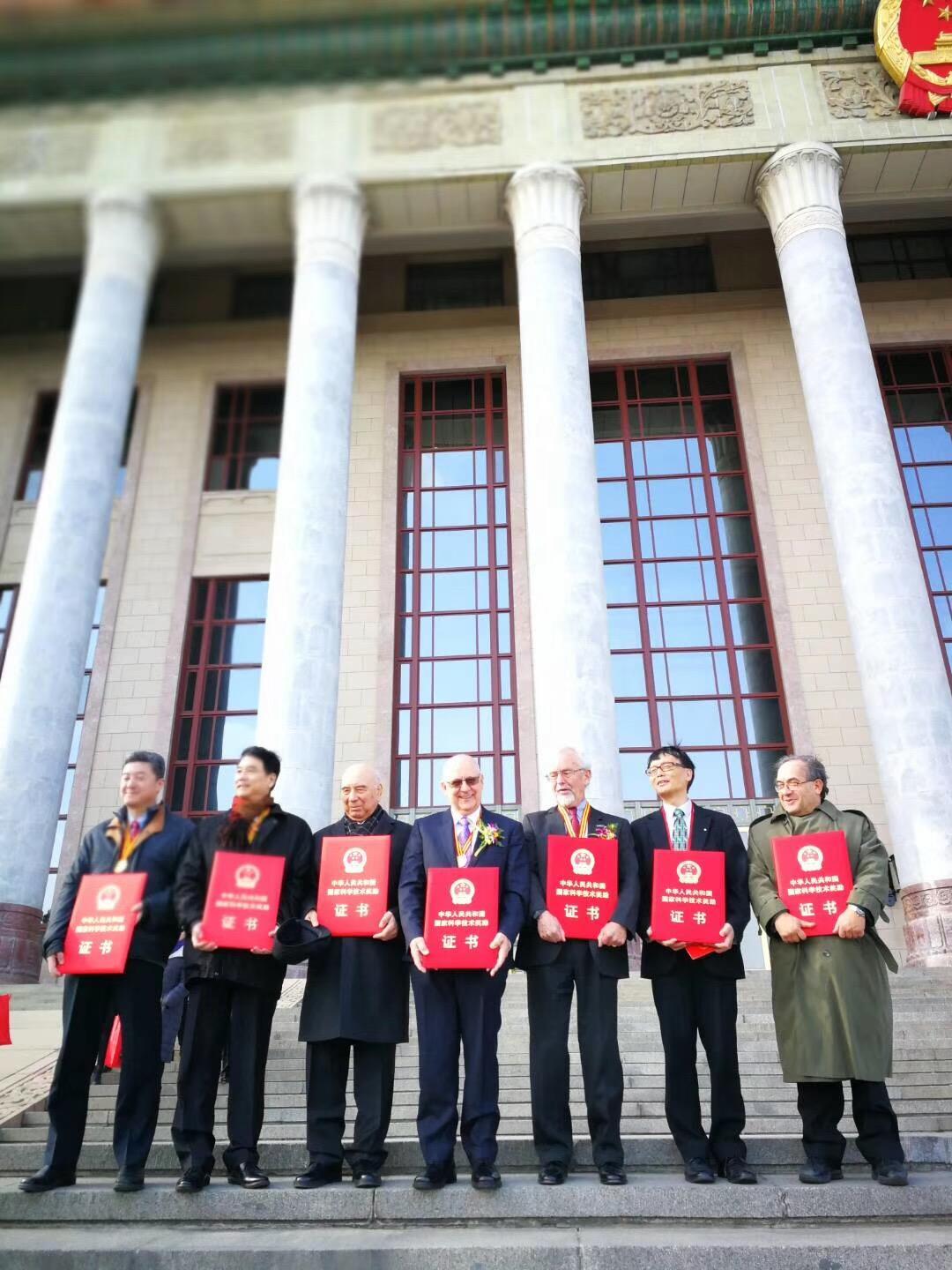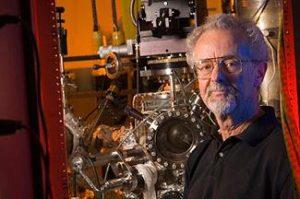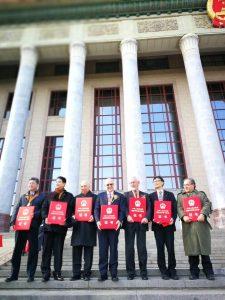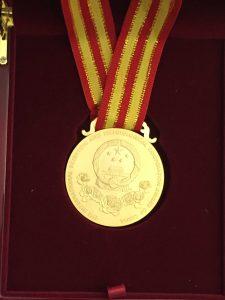Through his consistent collaboration with China and cooperation with global science, LSU physics professor Ward Plummer has received many awards from China. However, receiving an award from the Chinese president himself was on another level.
Chinese President Xi Jinping presented the 2017 International Science and Technology Cooperation Award to Plummer on Jan. 8 in the Great Hall of China.
According to Plummer, the award is given to no more than 10 people. This year’s recipients included seven scientists from all over the world. However, Plummer said this ceremony was also used to present very prestigious awards to Chinese scientists.
“If you were anybody in China in science and technology,” Plummer said, “you wanted to be at that meeting.”
This is not the first time Plummer has received an award from China. In the last year, he said he’s gotten three, including one from the head of the Chinese Academy of Sciences. However, he said this was the most formal ceremony he has attended. The Chinese government paid for his entire trip, including a business class plane ticket.
Though over the years Plummer has taught many students who went on to great things in China, he said he believes the biggest factor for his award was the International Center for Quantum Structures (ICQS) in the Institute of Physics at the Chinese Academy of Sciences, which he founded in 2000 with Enge Wang and Zhenyu Zhang.
“It has been the model for globalization of science programs,” Plummer said. “Five people came from the United States, and several from Europe. If you look at that set of people in 2000, they’ve all been successful. There are four presidents of Chinese universities in that picture, and three of the people from the United States were elected to the National Academy of Sciences or the National Academy of Engineering.”
Plummer said his collaboration with Chinese scientists is a result of a recent effort to make their science global.
“It’s very important for them now to try to get their science to be global,” Plummer said. “They want arrangements with institutions to send their students here and send our students over there.”
Plummer also said China is more willing to fund research than the United States.
“Today, it’s much easier to get support for your research efforts in China than the United States,” Plummer said. “In the last several years, we have built two pieces of major equipment in China that I could not get any support for in the United States.”
Plummer said the United States not only has less funding, but mostly focuses on facilities that can serve large numbers of people.
“If you want to build some state of the art thing that’s just for you and a few people, it just doesn’t happen,” Plummer said. “There, we wrote a three-page proposal and got millions of dollars. And the review process was a month, not a year.”
Plummer said he believes the Chinese government knows their science needs to be global.
“If they are going to make a major impact, they have to be working with everybody, not just going at it alone,” Plummer said. “They all say economic development is science-based. ‘Science-based’ is one of the phrases we’re not supposed to use in the United States. It’s a different world.”
LSU physics professor collaborates globally, receives award from Chinese President
January 30, 2018



